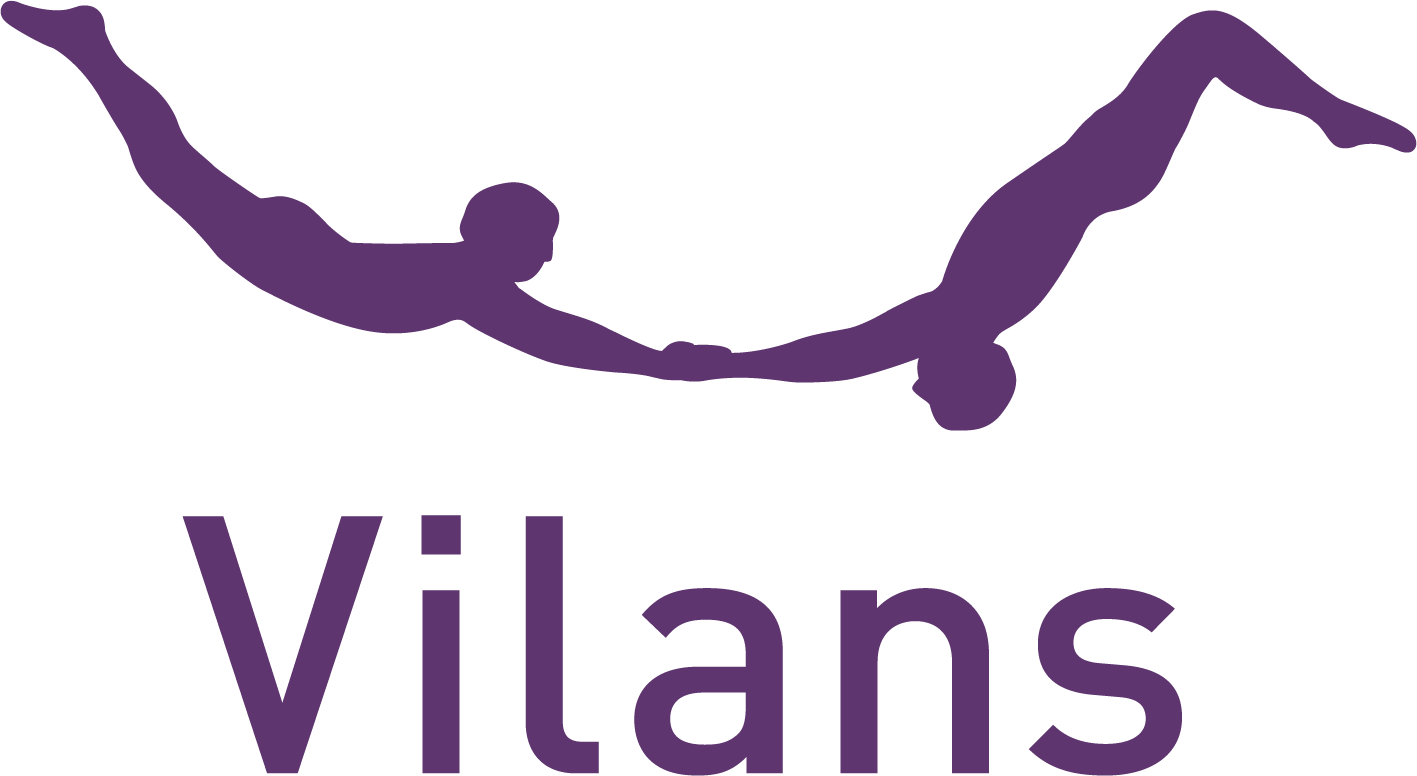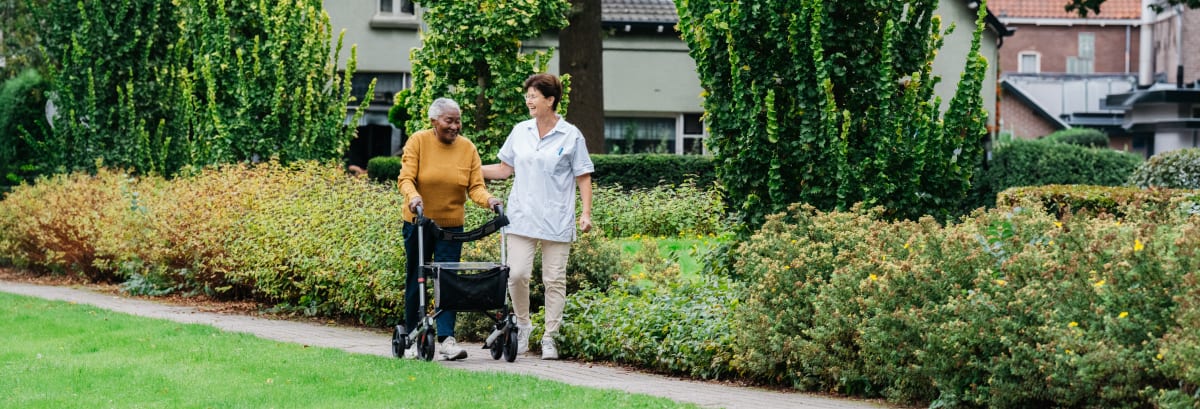Portrait series reablement: ´Let them do as much as possible themselves´
Published on: 06-06-2025
With reablement you work on the self-direction and self-reliance of elderly clients. But how do you best support clients in regaining their self-reliance? As a healthcare worker, how do you get used to working more with the 'hands off' approach?
In this series of portraits, we take you along care organizations that implement reablement in their practice. This time, we feature a caring IG (individual care assistant) from Mijzo.
Why do you think it is important to work on self-reliance?
'If we take over too much, people become less active, and their health deteriorates more rapidly. They walk less and perform tasks less effectively, leading to increasing problems.'
What inspires you to stimulate self-reliance?
'Continuing care in the current way isn't sustainable. In the future, we won't be able to handle all the work. Moreover, it's crucial for people to take more control over their own lives.'
What do you experience in practice around reablement?
'We ring the doorbell of clients and they open the door themselves. If they live in a flat, we ring the doorbell downstairs and again upstairs. Before I go in, I look up the care plan to see if there is any new information. I am familiar with the clients and know what to do. I am also acquainted with how they want to receive care and what they would like me to take over. For a new client, the care plan doesn't contain everything yet. Then I observe at what this person can do himself. I always try to let them do as much as possible themselves, for example washing their arms and face.'
For a new client, the care plan doesn't contain everything yet. Then I observe at what someone can do themselves. I always try to let them do as much as possible themselves, for example washing their arms and face.
'New clients who request our care start with the "Langer Actief Thuis" (LAT - living actively at home for longer) program. In this program, they set goals with an occupational therapist, community nurse, and physiotherapist, with the ultimate goal outlined. We notice that many new clients prefer to receive as little care as possible and are motivated to do things themselves, such as washing and putting on compression stockings. We also inform new clients about what they can (learn to) do themselves, what is expected from us and from them, and why that's important.'
'For clients who have been receiving care longer, these goals aren't always present. That's still a bit of the "old" way of caregiving. These clients are more likely to ask, "Can't you do that? You've always done it that way." Then I explain, "By doing it yourself, you stay active longer." We also help this group become more self-reliant, for example, teaching them to put on compression stockings themselves. Before, we would always enter these clients' homes with a key. That's no longer the case.'
How do you stimulate self-reliance?
'I usually start with, "Try it yourself first. If it really doesn't work, I'll help." Then I hand over a washcloth and take my time. A positive approach is also important, like saying, "You can do this yourself". Sometimes clients say they really can't do it themselves because, for example, their arm won't go up. But I see that they are able to do it, so I say, "You did it yourself before; try again". Or for someone who just came out of a rehabilitation centre, I say, "You did it during rehab too". I read that in the rehabilitation report and refer to it.'
'Highlighting someone's goal also helps. If someone wants to walk outside independently again, I explain that we're working towards that together. Then people understand why we're doing it this way. You emphasize that they're not there yet and what our aim is. I also pay attention to how far someone can progress and continually explain why it's important to do things themselves. Or I assess what the partner can do and learn, like putting on compression stockings. We teach that step by step. Partners can be overwhelmed, so my team and I regularly check in on how they're doing and evaluate the situation. Circumstances can change. For instance, a partner once indicated they were willing to take over some of the care we provided.'
I usually start with: "Try it yourself first. If it really doesn't work, I'll help."
What led the partner to say that?
'The partner heard from us that they could learn to do it. You need to wait until the pressure on the partner subsides. During evaluations, we mention that we can discuss it again in six weeks. We always highlight the benefits for them: more freedom, not being dependent on care, fewer different people coming over, having control, and increased confidence in their abilities. And the ability to stay at home longer.'
How do you approach working 'hands-off'?
'There's no checklist of what we do and don't do, but we know it. We observe. We don't say, "That's not our responsibility", and then leave. We ask, "Who does the dishes for you?" and then ensure someone else handles those tasks. Sometimes we get requests like, "Can you drop by an extra time?" Then I explain what community nursing entails and that an extra visit isn't covered. I clarify what we can do and explore what the network can handle. For example, a client's family asked us to change wet bedsheets frequently. We then asked the daughter to take care of that. Additionally, we inform them about other forms of assistance, like Home Instead and Saar aan Huis.'
'Sometimes, it's simply not feasible for someone to live at home anymore. In such cases, it's our role to recognize that and discuss it.'
How do you focus on self-reliance with your team?
'When I started working in care, the pressure on the system was already intense. Something had to change. I often discuss this with my colleagues. Sometimes I catch myself doing things I later regret - like automatically opening the curtains or making someone's bed. Those things people might be able to do themselves. We could also involve family more often, for instance by sending them a quick WhatsApp message asking if they can assist.'
'Some of my colleagues - especially those who've been working with us for a longer period - still tend to take over tasks from clients. That leads to differing opinions within our team. For example something like opening a window. Some colleagues say, "That only takes a minute". But I think: "A client can do that himself". For me, it's important that as a team we are on the same page about what we do and do not take over. If someone is still capable of doing something, I believe they should continue doing it himself. Otherwise, they'll gradually lose those abilities and may eventually no longer be able to live independently at home. As a team, we regularly reflect on these kinds of issues.'
What tips do you have for colleagues?
- Don't start by taking over tasks when working with new clients. Carefully observe what the client is still capable of doing himself.
- Always approach clients with a positive mindset.
- Clearly name the goals and explain what you're working towards together - even when things become challenging.
- Consider assistive devices and what the client's partner or broader network can (learn to) do.
- Always involve a physiotherapist or occupational therapist to assess what the client can still do - they offer a different perspective and can advise on adjustments in the house.
About the Portrait Series
In the Portrait Series on Reablement, we take you along care organizations that translate reablement into their practice. Read from this series the interview with community nurses from Cicero Zorggroep, Careaz and ZuidOostZorg.
Contact
If you have any questions about this article, please contact Jeanny Engels, expert at Vilans.






